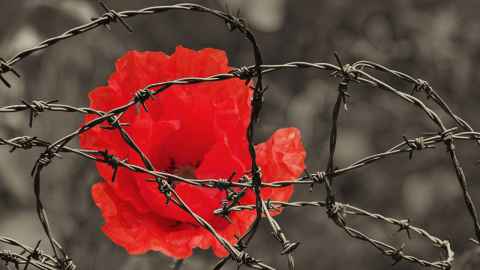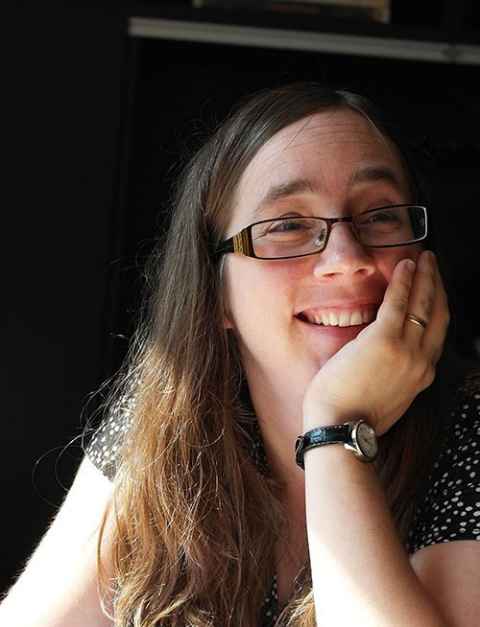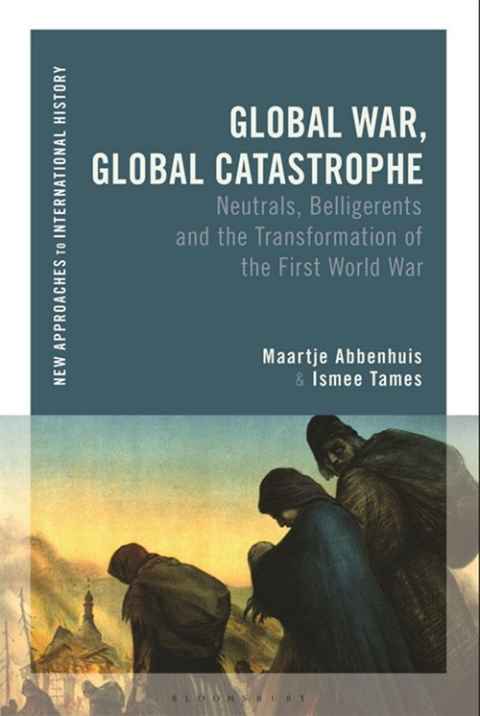The devastating global effects of World War One
24 March 2022
The global devastation wrought by the First World War is the focus of an award-winning book co-authored by University of Auckland historian Maartje Abbenhuis.

Global War, Global Catastrophe: Neutrals, Belligerents and the Transformation of the First World War (Bloomsbury Collections, 2021) by Professor Abbenhuis and Ismee Tames, a professor of history at Utrecht University in the Netherlands, has jointly won the 2021 Norman B. Tomlinson Jr prize for the best work of history in English on World War One.
In a crowded field of scholarship inspiring dozens of new books every year, the prestigious American World War One Historical Association (WW1HA) accolade, also awarded to two other co-winners, was a delightful surprise, says Professor Abbenhuis.
“The prize has a global lens and has been won by internationally notable historians so we are very honoured to win it.”
She says the book was only possible due to the enormous amount of work published during the centennial of WW1 (2014-2018), including on neutral countries and colonised communities.
“It was the countries that have traditionally been written out of that history because they weren't belligerent (militarily active) that particularly interested us. We wanted to see what happens when you make those marginalised voices shine through. How do their war experiences alter the way we might write a general history of the war?”
We wanted to show that this misery was created by governments in pursuit of power, and that had a huge effect on the whole world, but also and less well known, on imperial communities and colonised peoples.
And now with the current war in Ukraine, neutral countries again face questions of what responsibilities they have to shape the course, and even the outcome of a conflict; because no one is really ‘neutral’ in the moral or political sense of the word, she says.
“At the moment, for example, it’s obvious that Ukraine has the support of the majority of neutrals who are effectively saying, “Hey, you can’t just invade a peaceful neighbouring state and start killing people."
The book is an overview of the First World War as a catastrophe on a grand scale. It references more than 90 countries’ war experiences, from Africa and Latin America to the Asia-Pacific region, and of course also includes Aotearoa New Zealand.
“Over the course of four years the war turned into a global calamity where everything changed for everyone, and the key argument we're making is, it didn’t matter where you were living in the world, you were fundamentally affected by this war,” says Professor Abbenhuis.

Some examples include Samoa losing 20 percent of its population as a result of the deadly Spanish flu, which swept around the world with the movement of soldiers in 1918 and 1919. Or Colombia, whose government stopped paying employees, resulting in widespread social unrest. In fact, most countries were so economically stressed by the war that inflation shot through the roof, she says.
“So by 1917, people were protesting against governments and policies, all things are very familiar to us right now.”
The book explains how the war caused massive and lasting changes in social and political cohesion in all manner of countries and communities and how its effects were not contained to Europe or the major imperial powers who were fighting it.
Not only were there military theatres everywhere in places like East, West and Central Africa where millions of Africans died fighting for their colonial masters, millions more civilians died of illness and starvation because of the war’s economic impact and the requisition of food and supplies by local military authorities. The same was true for much of the Middle East.
Professor Abbenhuis says the book is a work of synthesis and contains the scholarship and research of numerous people.
“It’s also a heavy book, a sad book, but we wanted to show that this misery was created by governments in pursuit of power, and that had a huge effect on the whole world, but also and less well known, on imperial communities and colonised peoples.”

Media contact
Julianne Evans | Media adviser
M: 027 562 5868
E: julianne.evans@auckland.ac.nz